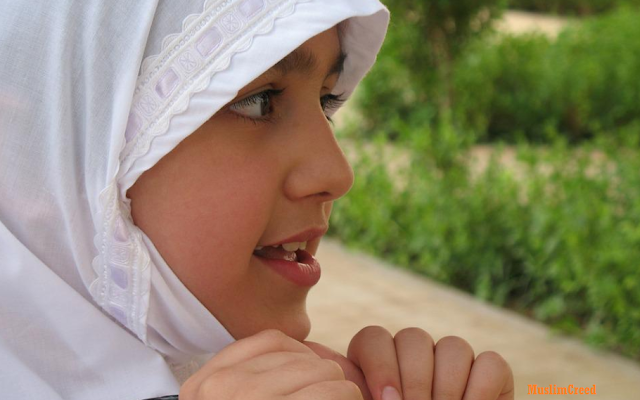 |
| 7 Important Meanings of Fasting in Ramadan |
Teaching Mama’s Children about 7 Important Meanings of Fasting in Ramadan
Does fasting only hold hunger and thirst? Let’s see the full explanation here, Ma!
In the month of Ramadan. Have you prepared your child to start fasting and worship?
Ramadan is not just the practice of fasting to withstand hunger and thirst during the day or getting up to eat before the time of Imsak arrives. Ramadan is also not about Mama getting up early to prepare sahur food and preparing iftar dishes before the Maghrib call to prayer.
Ramadan is not just the things mentioned above, but an opportunity to increase the value of spirituality in full by doing fasting and other good things.
Therefore, Mama can teach the child to understand the fasting worship of Ramadan since he started fasting.
1. Fasting will strengthen faith and belief
The fasting month of Ramadan lasts from 29 to 30 days. All Muslims must refrain from eating and drinking, from dawn to sunset.
During the fasting month of Ramadan, Muslims are encouraged to increase their reading of the Qur’an and perform other sunnah worship. That way, mama’s children can strengthen their beliefs and fill the free time between their activities by increasing their worship.
2. Fasting is a time for sharing
When your child has entered the puberty phase, fasting in Ramadan is obligatory. Except, people who suffer from chronic, mental, or physical illnesses are not required to undergo this fast.
In this month of Ramadan, teach children to share with people in need, Ma. For example, giving food to people who can’t afford it or giving alms. This is good for the child’s development to become a light-handed person, Ma.
3. Fasting trains self-control
Apart from holding back hunger and thirst, another challenge of fasting is how to avoid bad words, impatience, and bad behavior.
Mama can give understanding to the child that in fasting the child must be able to control himself so that he stays away from all negative actions. Emphasize to the child that he must do good to others, especially people who are in need of help.
4. Fasting means learning discipline
Mama can make Ramadan a disciplined school for a full month with various positive activities.
By getting children used to managing time to worship, when to sleep and wake up, play games, or study, indirectly the month of Ramadan can discipline the child.
5. Learn sympathy for others
Fasting in the month of Ramadan can at least teach children to share the suffering of their brothers and sisters who live in poverty or are not even able to meet their basic needs.
Holding back hunger and thirst from morning to evening can make the child have a spirit of solidarity and sympathy for others whose lives are less than his.
6. It turns out, fasting is healthy for the body
Also teach the child that fasting can be healthy for the body, Ma. The reason is, there are many studies that say fasting has health benefits because the body will naturally detoxify.
With a regular diet and adequate nutrition during Ramadan, the child’s body will be healthier and avoid various diseases.
In short, although during fasting the child will feel hunger and thirst, instill in him that fasting also provides great benefits for his body’s health.
7. Lose weight
Mama’s child who is obese or overweight can be taught to fast to lose weight. This can be used as a way for Mama to regulate her diet while reducing unhealthy fats in her body.
When fasting, the body will slowly transition and use fat as a source of energy. That way, your child will be helped in losing weight.
When the month of Ramadan is over, Mama can rearrange her diet regularly and be healthier. Most likely the child’s appetite is not as big as before fasting, Ma.
In addition, the child also knows the benefits of fasting which can not only increase his faith, but also have a positive impact on his body.
Encouraging children to fast is certainly very good, but it is even better to explain to the child about the benefits of fasting in Ramadan and fasting, Mom!